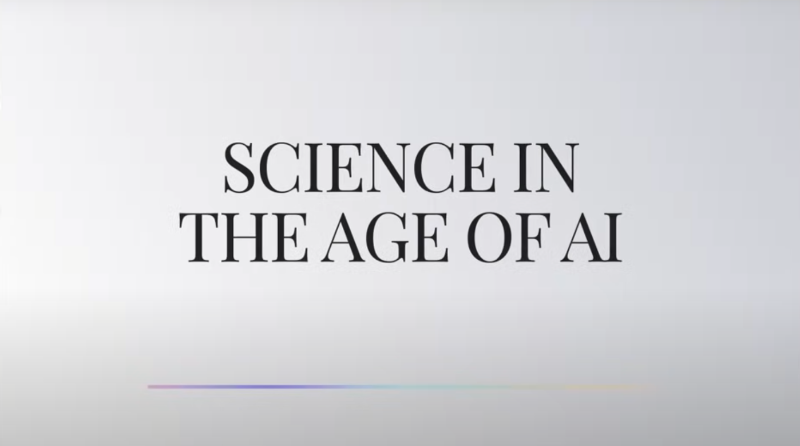by Leila Okahata, University of Oregon
Credit: Unsplash/CC0 Public Domain
The looming uncertainty and dangers of climate change can be paralyzing and debilitating, but a new study from the University of Oregon suggests that such gloom is not wholly harmful.
Feeling some climate anxiety is a widespread occurrence among youth today, with 7 in 10 young adults in America reporting feelings of climate anxiety in 2021. That can be a motivating force to inspire activism, the research shows, although only up to a certain point.
In surveys of undergraduate students from the UO, media studies researcher Emmanuel Maduneme found that individuals who experienced moderate levels of climate anxiety were more likely to engage in pro-environmental behaviors, such as making lifestyle changes or supporting climate policies, than those who felt extreme levels.
Eco-anxiety is often portrayed in media and literature as a pathological condition that needs to be cured, Maduneme said. But based on his latest research, he urges climate anxiety to be seen as a rational emotional response that can be channeled into empowerment.
"A lot of young people today are living in a generation where the environmental crisis is at the top of the public discourse," said Maduneme, a doctoral candidate at UO's School of Journalism and Communication.
"In many cases, they're consuming media and directly experiencing environmental changes. We're in a situation where people are anxious that some of the places they love today might be under the sea or dried out in the future."
Maduneme also found that media consumption plays a key role in shaping students' climate anxiety levels.
His findings appear in a recent paper published in the Journal of Health Communication.
Climate anxiety is especially prevalent among people of college age, Maduneme said, as they're directly and digitally living through the hazards of environmental change more than other generations. The climate crisis not only impacts the environment but also mental health, he said.
Climate anxiety is often discussed as problematic or disordered, but similar emotional responses of fear and anger can be adaptive and protective, Maduneme said.
"An example is the anxiety you feel when giving a presentation," he said. "Anxiety is a sign telling you how important this work is to you and can help you focus. But when anxiety levels become excessive, it can become impairing by making it hard to breathe, talk or act."
He wondered if climate apprehension could be transformed into climate action.
Maduneme surveyed 440 UO students and measured their climate anxiety levels by asking whether they agreed to statements like "Thinking about climate change makes it difficult for me to concentrate." The survey also asked how attentive they were about climate change news and whether they were likely to engage in pro-environmental behaviors like donating to a climate cause or joining environmental organizations and protests.
The study found that increasing levels of climate anxiety predicted pro-environmental intentions, serving as a catalyst for activism. But only up to a certain point: Higher levels of anxiety became disruptive, causing people to disengage or avoid acting.
That elevated load of distress can be mentally and physically overwhelming, Maduneme said, so the consequent inaction is what psychologists call emotion-focused coping: when people focus on protecting how they feel rather than addressing the problem.
"If you feel anxious about the environment, your feelings are validated," Maduneme said. "They are not coming from the wrong place because your concern means that you care. So don't let your anxiety get in the way of your ability to take action."
A higher consumption of climate change news also predicted higher eco-anxiety, Maduneme found. In a supplementary analysis not reported in the paper, he also found that people who got their news from social media were more anxious than those who engaged with traditional media like TV or newspapers. Maduneme plans to pursue future research to investigate whether different types of media consumption affect how empowered or disempowered people feel.
But what was most surprising to Maduneme were findings related to what are known as self-efficacy beliefs, or people's confidence in their ability to engage in effective action. His survey measured self-efficacy beliefs and collective efficacy beliefs, which are one's confidence in the effectiveness of group action.
Although the climate crisis is an issue requiring collective action, those who had greater self-efficacy beliefs were more likely to engage in climate activism. Maduneme said that could be because the actions the survey listed were private behaviors, but it may also demonstrate the individualistic worldview Western countries like the U.S. carry.
Maduneme believes the media has done a great job highlighting the problems and threats of climate change, but that's only part of the story. News coverage can be more comprehensive by including the solutions, he said. Journalists and newsrooms have been shifting to the practice of solutions reporting, with The Washington Post, for example, having a section dedicated to climate solutions.
Although climate change is daunting, we are not powerless, he said. That is evident in the rise of youth movements like Fridays for Future, founded by the icon of teen activism Greta Thunberg, and the first-ever youth-led climate forum at the 27th United Nations Climate Change Conference.
"When people feel empowered, they tend to pay more attention and be more creative and productive," Maduneme said. "Tell both sides of the story, the good and bad, and also how things can be better."
More information: Emmanuel Maduneme, Some Slice of Climate Anxiety … Is Good: A Cross-Sectional Survey Exploring the Relationship Between College Students Media Exposure and Perceptions About Climate Change, Journal of Health Communication (2024). DOI: 10.1080/10810730.2024.2354370
Journal information: Journal of Health Communication
Provided by University of Oregon







Post comments